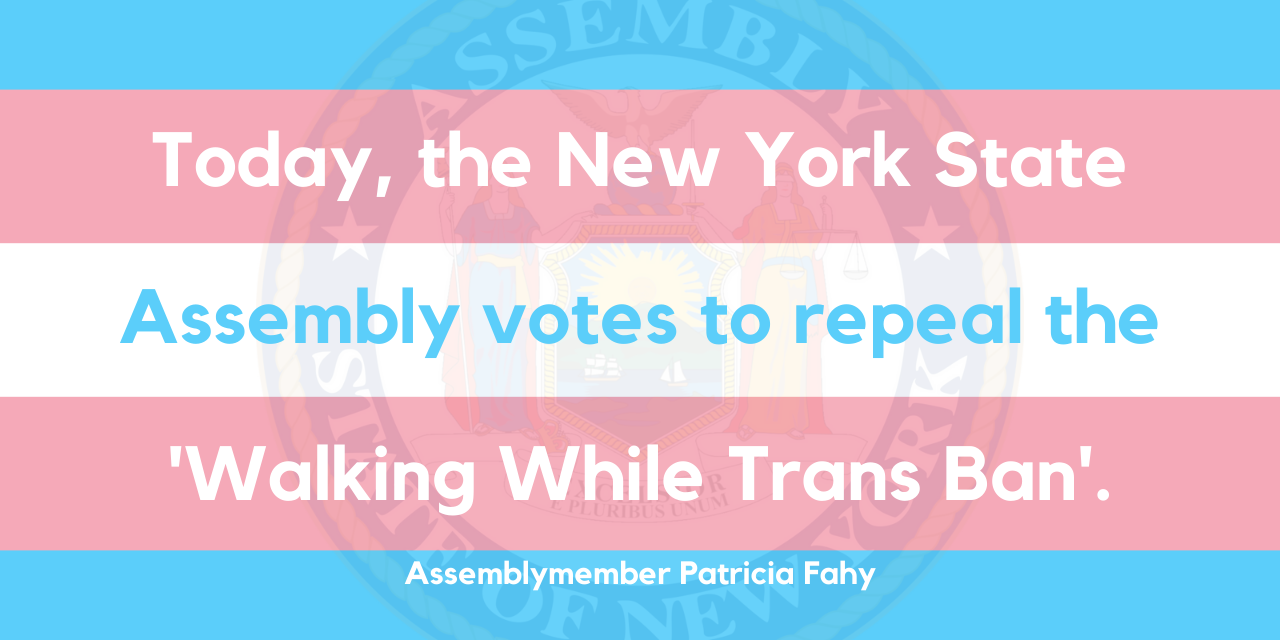Under a loitering law passed in 1976, law enforcement officers are allowed to apprehend anyone they suspect of engaging in sex work or prostitution with little evidence. This vague loitering law disproportionately affects women, and in particular, women of color and the LGBTQIA. Women have been arrested simply for walking home, standing alone, or talking with friends[1] – even standing outside of one’s own apartment could constitute “loitering activity” and an arrest under this law. In fact, as applied, the law targets the same marginalized groups that are at higher risk for sex trafficking and other forms of exploitation and abuse.
I’m proud to join my New York State Assembly colleagues today in passing legislation to repeal the Penal Law statute – Section 240.37 – that allows this discrimination to occur. Key law enforcement supports our efforts, too, like the District Attorneys Association of the State of New York (DAASNY):
“Over time, this statute has come to be used in ways that wrongfully profile people and even lead to their arrest based on nothing more than gender expression or appearance.”
In fact, police rarely arrest New Yorkers for this crime – most law enforcement agencies have abandoned using this law and rely on other measures, such as disorderly conduct charges, to address disruptive individuals[2] and, of course, prostitution charges for those who offer, solicit or promote paid sexual activity, all the more important to modernize our justice system’s approach to community policing.
[1] thecut.com/2018/01/when-walking-while-trans-is-a-crime.html
[2] timesunion.com/news/article/GOP-criticizes-pursuit-to-decriminalize-sex-work-15899604.php



Recent Comments